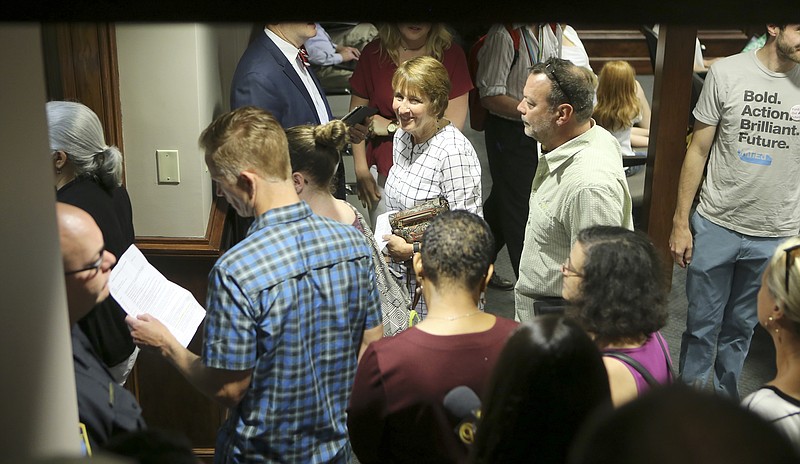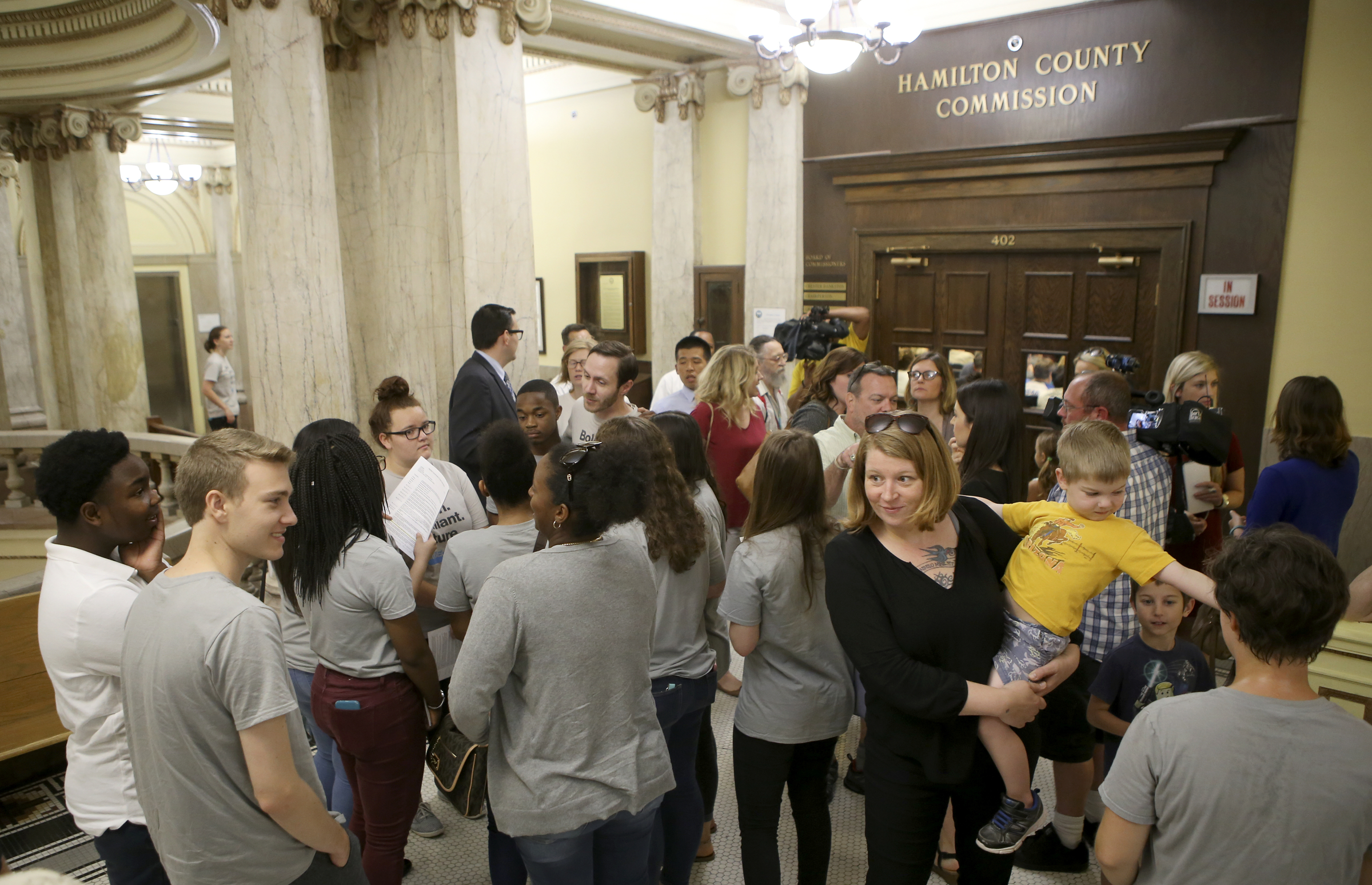Community efforts to increase school funding ended in disappointment late last month when the Hamilton County Commission approved its 2017-2018 budget.
Despite weeks of lobbying from parents and local advocates, the $691.5 million budget did not include a tax increase to fund the $24 million in additional needs identified by the Hamilton County Board of Education but not included in its proposed operating budget of $372.8 million.
If approved, the extra money would have been used to fund a variety of new teaching positions and programs, professional development stipends, technology updates and literacy support for low-performing schools, among other things.
"We're extremely disappointed that [the commissioners] didn't listen to their constituents," said Natalie Cook, communication director for local nonprofit UnifiED, which supports public education.
With the help of the nonprofit, she said more than 2,100 people wrote their county representatives to ask for increased school funding, and more than 150 supporters crowded the June 21 commission meeting in a final attempt to sway the body's decision.
"It was loud and clear what the constituents were asking for," said Cook, who was among the 150 supporters present. "On a broader level, [the decision] speaks to our elected officials' unwillingness to make education the top priority for our county."
Despite the exclusion of the additional $24 million, the approved budget allocates $425.7 million for the school district, a total which includes federal funding. The school budget grew by $8 million as compared to last year's thanks to dedicated growth money from increased tax revenues and state funding. When combined with capital project money allocated to the school system, education needs amount to 66 percent of the entire county budget.
"That's a great spend of the taxpayers' dollars; investing in our young people, investing in our workforce," Coppinger told commissioners last month.
In an interview last week, Kathy Lennon, who represents Red Bank, North Chattanooga, Stuart Heights and Signal Mountain on the school board, said all schools in her district would benefit from the literacy teachers, ESL teachers, career readiness programs, professional development for teachers and technology upgrades the additional funds would have provided.
The additional funds would have also funded art teachers in District 2 schools such as Rivermont Elementary, Red Bank Elementary and Red Bank Middle School. Lennon said Thrasher and Nolan Elementary schools on Signal Mountain probably would not have art teachers if they did not receive outside funding. The independent Mountain Education Foundation solicits donations from the community to fund such needs.
"We have critical needs across the entire system that were outlined on our critical needs list," Joe Smith, school board representative for the Hixson area, said in a separate interview last week, referencing the additional needs presented to the county commission with the board's proposed balanced budget.
It would have taken a 26.7 cent tax hike to cover the additional $24 million requested, according to recent county budget workshop sessions. That would mean $106 more in annual property taxes for a $158,000 home, the median value of owner-occupied housing in Hamilton County.
Coppinger said he spoke to commissioners one-on-one about the possibility of raising taxes to meet those extra educational needs. The overwhelming majority told him they could not support it because the public believes the county government and school system wasted money, he said.
"We'll run a good school system on what our funding body [the county commission] has given us, but to ever get to a great school system, that's going to require more money," Smith said.
Coppinger sent an open letter to school board Chairman Steve Highlander before the budget was passed, proposing that the county and school system start working together now to secure more funding for schools in future years instead of waiting until next year to reignite the conversation. Cook said the proposal is a step toward one of the concepts UnifiED has long been calling for: a multi-year budget and funding plan.
"We're very hopeful that Mayor Coppinger and Chairman Highlander will follow through with that and that it's not just talk of intention, but that they're actually going to put a timeline and a plan in place to be meeting regularly to cooperate on starting to build out a multi-year budget as soon as possible," Cook said.
Coppinger suggested the work begin as soon as the new superintendent is in place. In the meantime, Highlander, who was also among 150 present during the fiscal 2018 budget vote, said the advocates' efforts have not been wasted.
"I think the commission heard them, and I think that will be a consideration on the commission's part in the future," Highlander said in a followup interview last week. For now, he added, "We will do the very best that we can for the students with the money that we're provided."
Staff writers Paul Leach, Kendi A. Rainwater and Emily Crisman contributed to this story.

